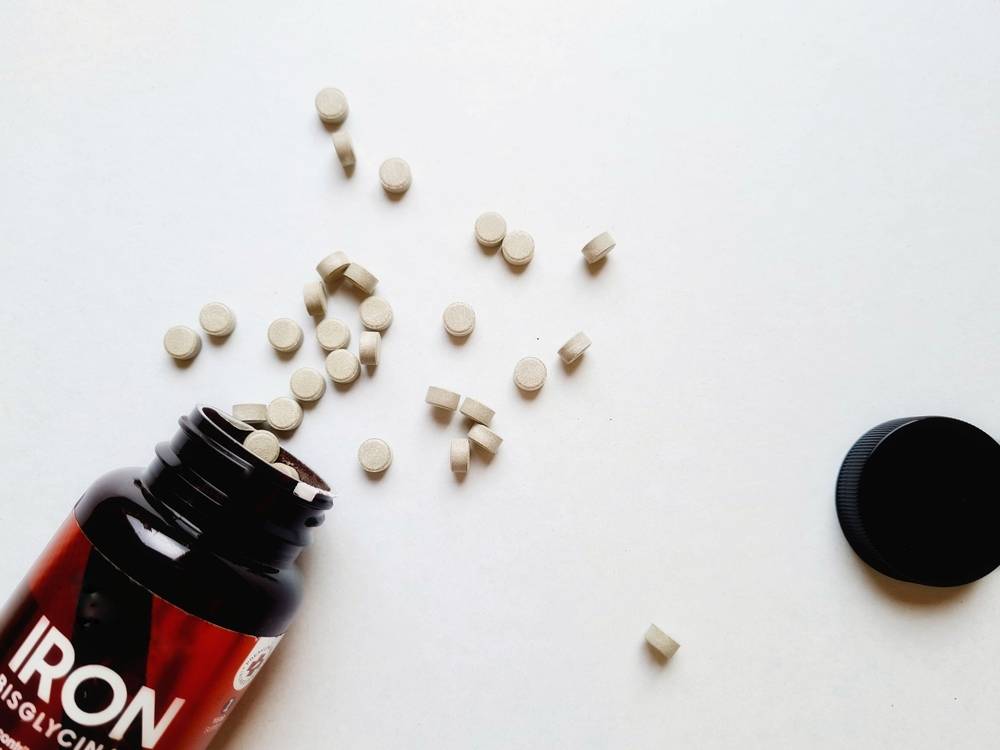Iron Is More Than Just a Mineral. It’s a Lifeline.
The type of iron you consume can shape how energised, focused, and healthy you feel. But not all iron is created equal, and understanding the difference can make all the difference.
Imagine feeling constantly drained, despite a balanced diet. Or struggling to meet the demands of a busy lifestyle. The culprit could be iron, or more specifically, the type of iron your body is getting.
Many people don’t realise they might be low on iron until symptoms start to disrupt daily life.
“The most obvious signs include feeling unusually tired, having pale skin, frequent headaches, dizziness, and shortness of breath. You may also notice cold hands and feet, brittle nails, and a reduced ability to concentrate. If the deficiency becomes severe, it could result in iron-deficiency anaemia.” Dr Kathryn Lloyd-Thomas, a general practitioner, tells GQ.
She also advises against self-diagnosing iron deficiency. “A blood test is the best way to diagnose low iron levels, as these measure stored iron, transported iron, and haemoglobin,” she explains.
Read more: Why Year-End Is the Best Time for a Health Screening
Disclaimer: The information provided in this article is for educational purposes only and should not be considered medical advice. Iron deficiency can have serious health implications, so it’s important to address any concerns promptly. Please consult with a healthcare professional for personalised guidance and to explore the treatment options that may be available to you.
1. Haem Iron
Haem iron supplements replicate the form of iron found naturally in animal-based foods like red meat, poultry, and fish. This type of iron is absorbed directly into the bloodstream, bypassing the complex conversion process required by non-haem iron. Its efficient absorption makes it a preferred choice for individuals with severe deficiencies or those who struggle with absorption issues.
Remarkably, more than 95% of functional iron in the human body exists as haem, which also constitutes two-thirds of the average person’s iron intake.
Best for:
- Individuals with conditions that impair iron absorption, such as inflammatory bowel disease
- Those with severe anaemia needing rapid improvement in haemoglobin levels
- People who experience digestive discomfort with non-haem iron supplements
Read more: Understanding Inflammatory Bowel Disease By Dr Chok Aik Yong
2. Ferrous Sulphate and Ferrous Fumarate
Ferrous sulphate and ferrous fumarate are two of the most widely used and effective forms of iron supplements. These non-haem iron options are easily absorbed, especially when taken with vitamin C to further enhance absorption.
Ferrous Sulphate: Often recommended as the first-line treatment for mild to moderate iron deficiency anaemia. It offers a reliable balance of effectiveness and affordability.
Ferrous Fumarate: Contains a higher concentration of elemental iron, making it suitable for individuals needing larger doses to replenish depleted iron stores.
Research has demonstrated that doses as low as 15 mg of elemental iron daily could effectively increase haemoglobin and ferritin levels in elderly patients with iron-deficiency anaemia.
Best for:
- Individuals with mild to moderate iron deficiency anaemia
- Pregnant women with increased iron needs
- People seeking a cost-effective and accessible supplement option
3. Ferric Iron Supplements
Ferric iron supplements, like ferric citrate or ferric saccharide, are another option for low iron levels. Since the body must convert ferric iron into ferrous iron before it can absorb it, these supplements are less effective for severe deficiencies.
Despite this, ferric iron supplements are often better tolerated by individuals with sensitive stomachs. They are frequently prescribed for those who require long-term iron supplementation without significant side effects.
Best for:
- Individuals with mild iron deficiency requiring gradual replenishment
- Those who experience digestive discomfort with ferrous supplements
- Patients needing iron supplementation alongside treatment for kidney disease
While ferric iron supplements are not the first choice for severe anaemia, they provide a gentler alternative for those with milder needs or specific medical conditions.
4. Iron Chelates
Iron chelates are particularly useful for individuals who cannot tolerate traditional iron supplements.
Best for:
- Individuals with a history of gastrointestinal sensitivity to iron supplements
- Those requiring a long-term supplement with fewer side effects
- People needing consistent iron levels but unable to consume higher doses
Iron chelates provide an alternative for those seeking a well-tolerated supplement that fits into a regular health routine.
5. Liquid Iron
Liquid iron supplements offer a convenient alternative to tablets and capsules. These formulations are often easier to digest and are absorbed more quickly by the body. This makes them a suitable option for individuals who struggle with swallowing pills or need faster improvements in iron levels.
Liquid iron is particularly beneficial for children, older adults, and those recovering from medical conditions that affect digestion. These supplements are also available in various flavours to improve palatability, which encourages consistent use.
Best for:
- Children or older adults who have difficulty swallowing pills
- Individuals needing faster absorption due to severe deficiency
- People with digestive issues that limit iron absorption from traditional supplements
Choosing the Right Iron Supplement for Your Needs
Once the right plan is in place, changes can happen relatively quickly. Mild deficiencies show improvement within a few weeks, with symptoms like fatigue and pale skin beginning to subside.
For more severe deficiencies, it may take two to three months to see significant changes in haemoglobin levels, though some relief in symptoms can occur sooner.
Iron supplementation, as Dr Lloyd-Thomas explains, “helps restore energy levels, enhances cognitive function, and boosts your immune system. While it can start working within a few days, it may take a few weeks or months for your iron stores to fully replenish, depending on the severity of your deficiency.”
Read more
- Nutritional Deficiencies
- 5 Health-Boosting Supplements for Men
- Boost Your Sight With These 5 Supplements for Eye Health
- Back to Basics with Vitamin B

